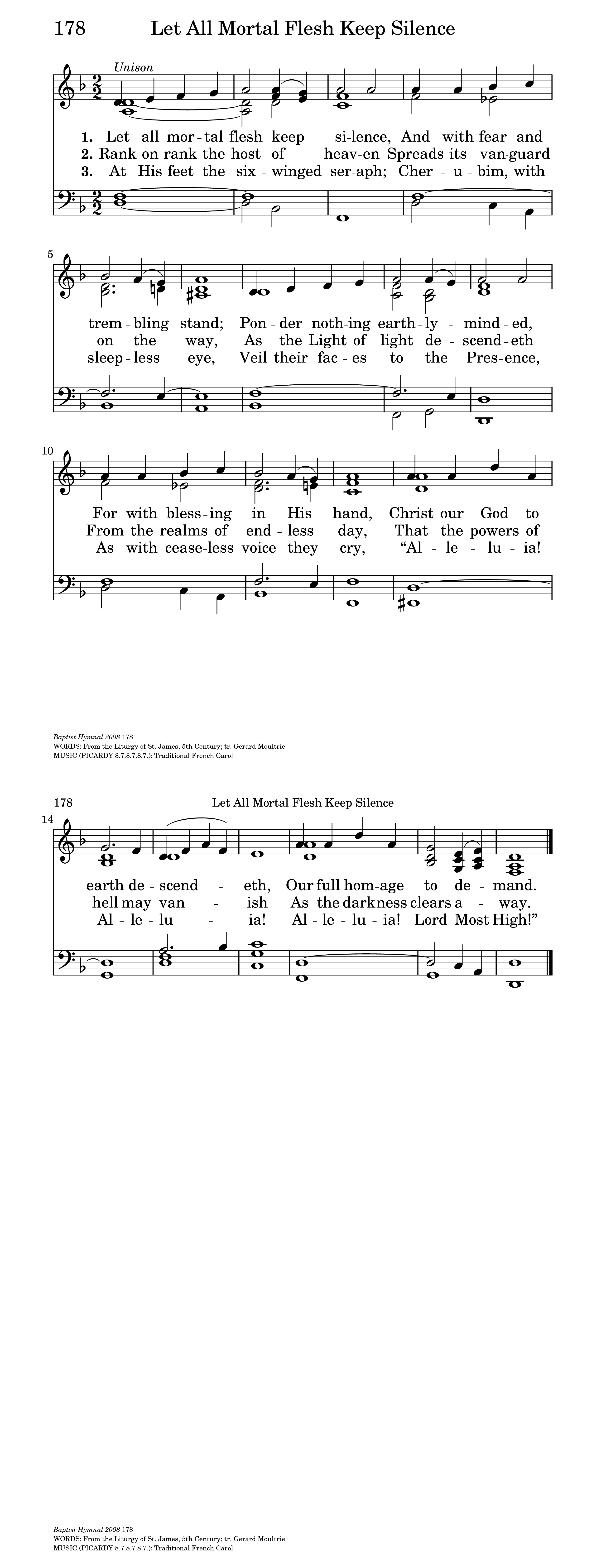1. All creatures of our God and King,
lift up your voice and with us sing,
"Alleluia! Alleluia!"
Thou burning sun with golden beam,
thou silver moon with softer gleam,
O praise Him, O praise Him!
alleluia, alleluia, alleluia!
2. Thou rushing wind that art so strong,
ye clouds that sail in heav'n along,
O praise Him! Alleluia!
Thou rising morn, in praise rejoice,
ye lights of ev'ning, find a voice,
O praise Him, O praise Him!
alleluia, alleluia, alleluia!
3. And all ye men of tender heart,
forgiving others, take your part,
O sing ye! Alleluia!
Ye who long pain and sorrow bear,
praise God and on Him cast your care;
O praise Him, O praise Him!
alleluia, alleluia, alleluia!
4. Let all things their Creator bless,
and worship Him in humbleness;
O praise Him! Alleluia!
Praise, praise the Father, praise the Son,
and praise the Spirit, Three in One;
O praise Him, O praise Him!
alleluia, alleluia, alleluia!
Scripture; Genesis 1-2;
1 Chronicles 16:23-34;
Job 12:7-10
The hymn "All Creatures of Our God and King" is a timeless Christian hymn based on a poem by St. Francis of Assisi, called the Canticle of the Sun (or Canticle of the Creatures), written in 1225. St. Francis, one of the most revered figures in Christian history, was known for his deep love and appreciation for nature, seeing all aspects of creation as a reflection of God's glory. His words in this canticle reflect his belief that every part of nature—sun, moon, wind, water, earth, and even death—is connected to God, and that all creation should join in praising the Creator.
Background of the Canticle of the Sun
St. Francis wrote Canticle of the Sun in his native Italian, which was unusual at a time when most spiritual works were written in Latin. Francis' choice to write in the common language allowed more people to connect with his message. The canticle is considered one of the earliest works of literature in the Italian language and is unique for its simplicity, reverence, and joy. It is also significant because it reflects Francis’ holistic view of the world and his desire for people to see themselves as part of God's creation rather than as separate from it.
In the Canticle, Francis personifies elements of nature, referring to the sun as "Brother Sun" and the moon as "Sister Moon," inviting them all to praise God together. This theme of unity among all creatures under God’s care was revolutionary and reflected Francis’s deep conviction that everything God made is sacred.









